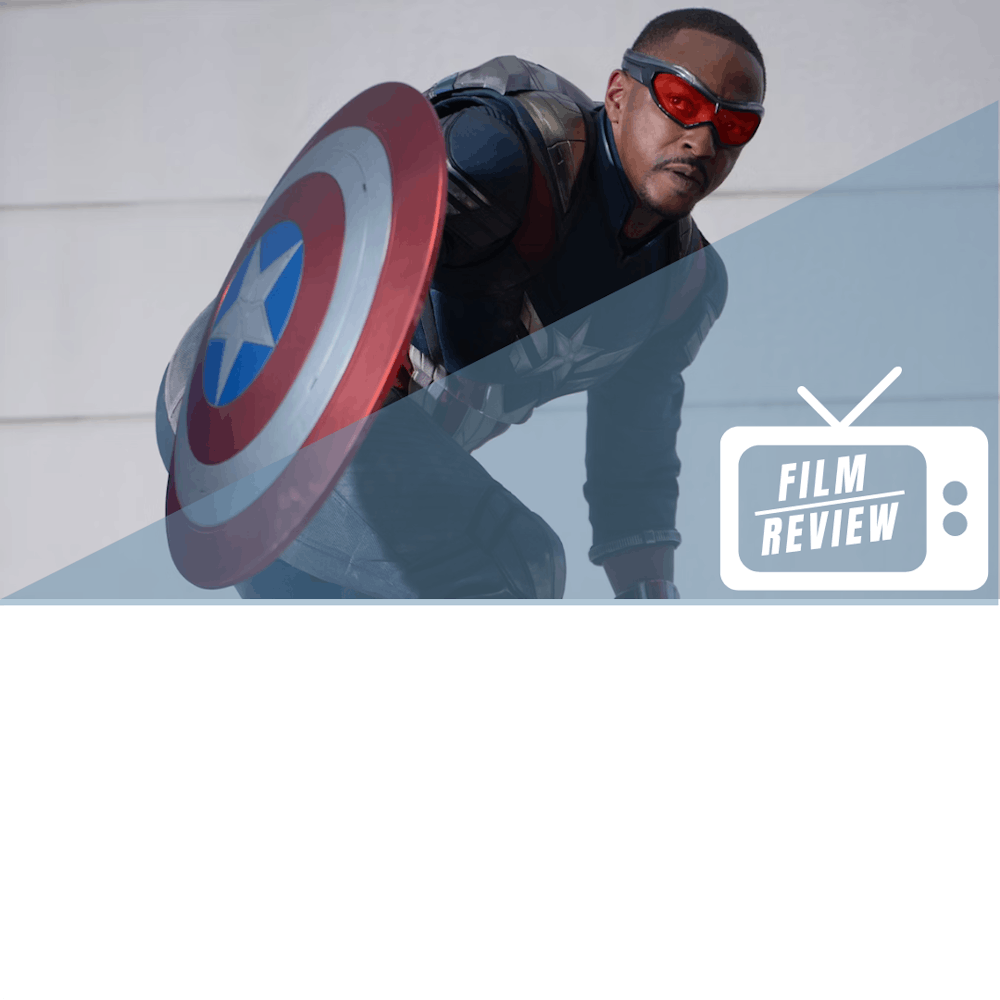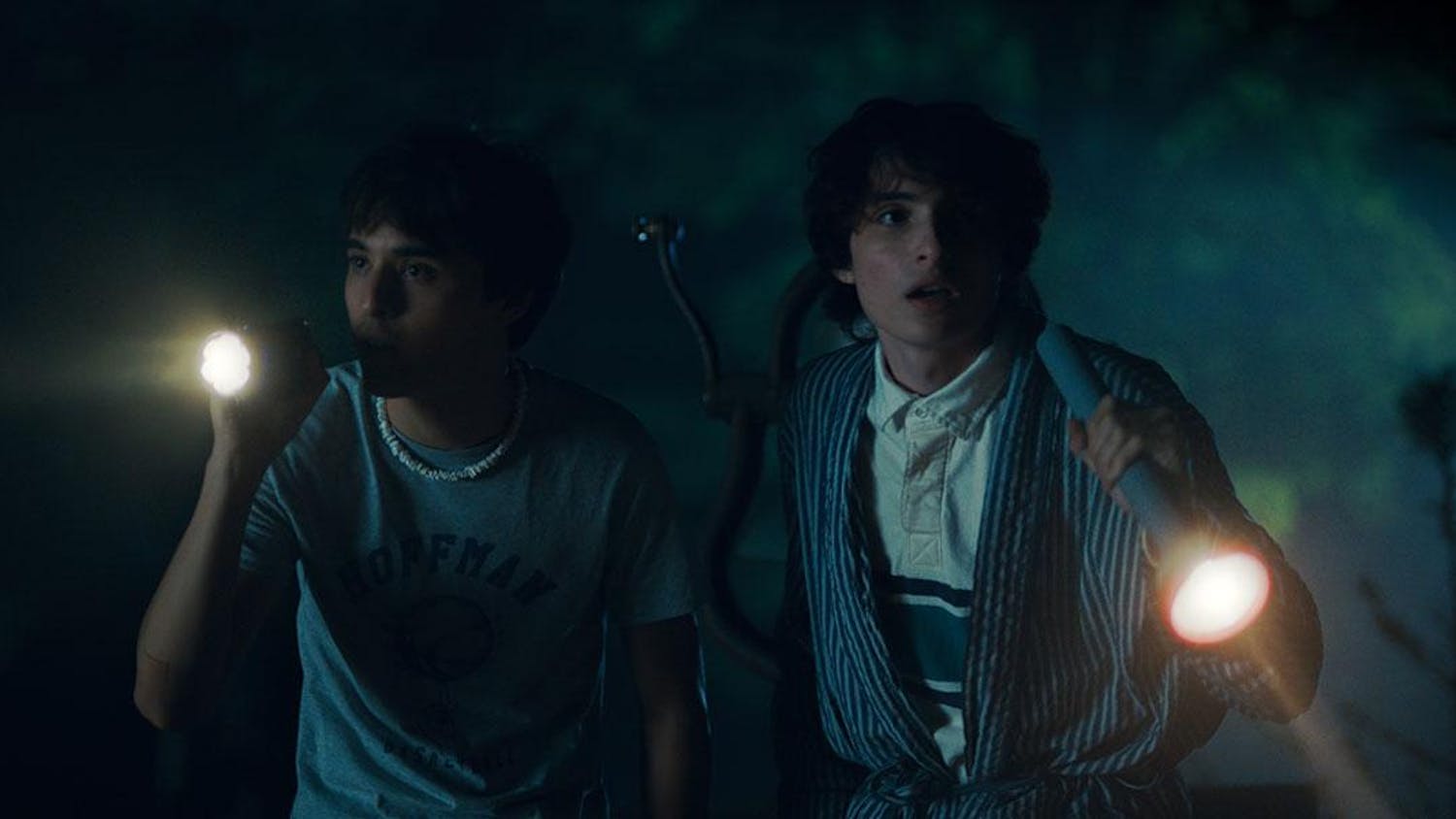The newest addition to the Marvel Cinematic Universe (MCU), “Captain America: Brave New World,” marks a triumphant return to glory for the franchise. Directed by Nigerian-American filmmaker Julius Onah, the film hit theaters on Valentine's Day and is the big-screen debut for Anthony Mackie’s Captain America.
The film follows Sam Wilson (Mackie) as he navigates a global conspiracy with a mysterious source. Working tentatively alongside the American government, Wilson aids the president in finalizing an important treaty regarding adamantium, a newly harvested and highly versatile substance. As the plot unfolds, questions emerge about the intentions and history of the recently-instated president, Thaddeus “Thunderbolt” Ross (Harrison Ford), leading to new, larger-than-life challenges.
Wilson is fighting under the Captain America moniker for the first time since “The Falcon and the Winter Soldier” (2021), a Disney+ series that followed him immediately after he accepted the title of Captain America. In the film, Wilson’s struggles with a controlling government and the Blip — when Thanos wiped out half of all living things on Earth — are less than two years behind him. He is barely adjusted to his new role. Perpetually aware of the gargantuan shoes Steve Rogers, the former Captain America, left him to fill, our newest Captain grapples with his identity. But evil does not plan on waiting for the former Falcon to figure himself out.
The audience is immediately thrust into action alongside the new star-spangled hero. Fitted out in an intricate white super-suit with his trademark wings and the classic shield, Wilson is fighting right off the bat. Featuring well-choreographed hand-to-hand combat and intense stunts, these fight scenes inject substantial visual appeal into the film and are some of the best Marvel has produced in recent years. They also contain the quick quips and lighthearted humor we can expect from a good Marvel fight as Wilson and his allies bicker throughout the battle.
The movie is not just an action-comedy, however. The emotional core of the story — the theme of self-doubt — becomes an important through line for the plot. In the moments when Wilson needs it most, well-timed cameos from familiar heroes such as Bucky Barnes (Sebastian Stan) and Betty Ross (Liv Tyler) relieve his doubts. Hitting intentional, heartwarming notes, the interactions between old and new characters in this film were the right amount of sappy without diverging too far into tacky territory.
Ford’s character, President Ross, is a standout in the newest installation of the MCU catalog. Played by William Hurt before he died in 2022, Ross has a tumultuous past with the Avengers, including delegating the Sokovia Accords that all but disbanded the team. Ford’s fresh portrayal of the character made quite an impact, however, and it was entertaining to watch him blend Ross’ complicated emotional background with a light-hearted attitude in his enthusiastic performance as Red Hulk, Ross’ alter ego.
New additions to the MCU also shine in this film as Isaiah Bradley (Carl Lumbly) and Joaquin Torres (Danny Ramirez) make their MCU movie debut. Featured in the Disney+ series, these characters have a history with the new Captain America. Bradley is an older supersoldier haunted by his past traumas, whereas Torres is a young and rowdy Falcon-in-the-making, suited up in the same wings Wilson wore before picking up the shield. Both are connected to Wilson in meaningful ways: Bradley shares Wilson’s struggles as a Black hero in an oppressive state while Torres reminds him of his beginnings. The duo is also capable of pushing Captain America’s buttons, making interesting, riotous scenes whenever all three characters are together.
Out of all the new cast members, Ramirez is a personal favorite. His character, Torres, best exemplifies the next generation of Marvel standouts. His meaningful presence in the film indicates that the franchise hopes to emphasize emerging heroes as the MCU kicks off Phase Six, the third wave of the Multiverse Saga, with the release of “The Fantastic Four: First Steps” in July. However, the movie doesn’t only look toward the future, it features references, characters and plot points that connect back to the first MCU movies. Most notably, references to “The Incredible Hulk” (2008) — a largely forgotten piece of the MCU puzzle — resurface with the inclusion of Betty Ross and direct mentions of her past romance with the Hulk, allowing long-dimmed storylines to re-enter the limelight.
While needing to brush up on past plots may be tiresome for some viewers, Marvel’s decision to honor canon progressions is notable. These callbacks will be appreciated by true MCU lovers who have criticized the franchise for catering toward the general public and box office too heavily in recent films. Almost like an apology, these details reinforce Marvel’s determination to return to their roots.
“Captain America: Brave New World” is certainly a step in a desirable direction for the MCU. Falling back on tried and true themes of self-discovery, misunderstood villains and redemption arcs, coupled with the introduction of new, spunky characters, this movie hits a mark Marvel has missed multiple times in recent years. Ushering in a new paradigm, Captain America has set the right tone.










